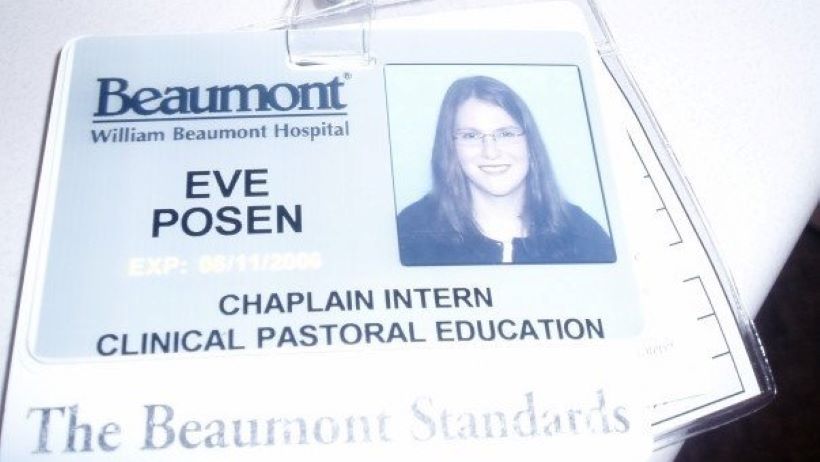When I was in rabbinical school, I spent a summer doing an intensive unit of chaplaincy in a level-one trauma hospital in Michigan. Over that summer I learned about what it means to be with people in their highest of highs and lowest of lows, as well as how a multitude of religions approach healing and comfort. Our group of 10 clergy spanned six different faiths, and I was the only rabbi in the group. Every morning we would begin with a centering prayer, led by a different student. Some mornings we did meditation, others we studied text, and others we looked at liturgy. Then we’d break into our teams of two students each and go to our assigned floors and visit every patient.

It seemed almost every time we entered a room, someone asked the chaplain to pray for them. My chaplain partner Jen would then ask them what they’d like her to pray for, then they’d close their eyes and hold hands, and she’d offer an extemporaneous prayer. And I would stand there, terrified they’d ask me. I knew the Misheberach, the traditional prayer for healing in Judaism, but I had never been asked to offer a spontaneous prayer aloud. That summer, more than anything else, I learned the power of a unique, personal, unscripted blessing.
Oddly, it took until graduate school for me to figure this out since the Torah is filled with extemporaneous prayers, including in our Torah portion this week. We read from Parshat Chayei Sarah, which makes the transition from one generation to the next. Beginning with Sarah’s death, we learn about Isaac and his courtship with Rebekah, the list of Abraham’s descendants, and the death of Abraham and his burial at the cave of Machpelah. Through it all, the family continues to carry themselves forward from experiences of loss and grief into the next chapters of life.
As Rebekah is preparing to go meet Isaac, her family asks her if she is willing to travel to meet him. When she agrees, they send her off with a blessing: “O Sister! May you grow into thousands of myriads; May your offspring seize the gates of their foes!” This wasn’t asked for or expected, it just happened.
There’s a certain power in offering blessing one person to the other in moments of transition. While the siddur is a beautiful guide for the notion of prayer, the prayers are meant to be just that, a guide, not a set-in-stone limit to what we can offer. May we read this moment in the Torah as an invitation to open our hearts to others, to speak the words of our hearts, and to fully be present in everything we do.



